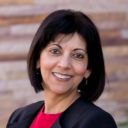A recent New York Times headline following the March 15 mass shooting at two mosques in Christchurch, New Zealand, poses the question, ‘As Details Emerge on Gunman, New Zealand Asks What It Could Have Done Differently.’ The article focuses on what federal agencies could have done to prevent the massacre of 50 men, women and children in their houses of worship. What the article neglects to address is what needs to happen in society to change the systemic causes of hate and violence.
One of the stated goals of the New Zealand shooter was to divide communities and incite a civil war in the United States. Religiously motivated hate crimes have been increasing in the US since 2016, up from 1,272 in 2016 to 1,564 in 2017. Targets of these crimes are members of traditionally marginalized communities, from an Imam murdered in New York City to African American worshippers gunned down in Charleston, South Carolina to the recent desecration of 59 gravestones at a Jewish cemetery in Massachusetts.
With hatred and violence at epidemic levels, philanthropy has a unique role in helping bridge these divides as aggressively as those fighting to widen them.
We have an ever-increasing number of foundations and philanthropists dedicated to a better world for all. Despite the noble ideals, foundations and philanthropists too infrequently engage in connecting all faiths—including those who don’t claim a religion. Even the recent surge of diversity, equity and inclusion efforts overlook religious difference.
Religious pluralism can play a catalytic role in unifying humanity, particularly in the wake of such tragedies as the hate-motivated shootings in New Zealand, both by financing programming and advocating for religious pluralism throughout the country.
The Global Center for Pluralism in Canada defines pluralism simply as an ethic of respect for diversity. Whereas diversity is a fact, pluralism is a choice. It’s a choice we all make every day when we recognize and value human differences and seek to listen, learn, and engage with the diversity around us.
In response to a mass shooting in our neighborhood and building on our work with ‘This American Moment: Bridging Religious Divides,’ the Conrad N. Hilton Foundation engaged the Aspen Institute and The Council on Foundations to develop a series of workshops on pluralism across the country. The initiative will connect local and national funders whose work touches religious pluralism with a cross-section of local community leaders, content and experts.
The first discussion will take place in Birmingham, Alabama – chosen for both its historical significance and current religious tensions. Co-hosted by the Aspen Institute’s Inclusive America Project and the Community Foundation of Greater Birmingham, the event will spark meaningful conversation about the role religious pluralism can play in healing the country and will provide space for discussion on funding issues related to religion, religious expression and freedom, and religious bias.
If those looking to divide are building a platform based on violence, philanthropy needs to use its voice and resources to not just speak out against hate, but provide a solution for the deep cultural divides that exist in the world today.
Funding, advocacy, and policy change can only do so much. To have a lasting impact, we need to pair policies like common sense gun laws and hate crime laws with citizen-led culture change. Religious pluralism needs to move beyond gatherings convened by foundations, civic leaders and think tanks and become a movement that thrives on social media, ignites dinner conversation and becomes a force in the everyday lives of today’s youth.
As a start, in addition to the usual thoughts and prayers response, let’s encourage one another to seek to listen, learn, and engage with the diversity around us.
Shaheen Kassim-Lakha is Director of International Programs at Conrad N. Hilton Foundation





Comments (1)
Well said! Could not agree more. Thank you for leading this charge.